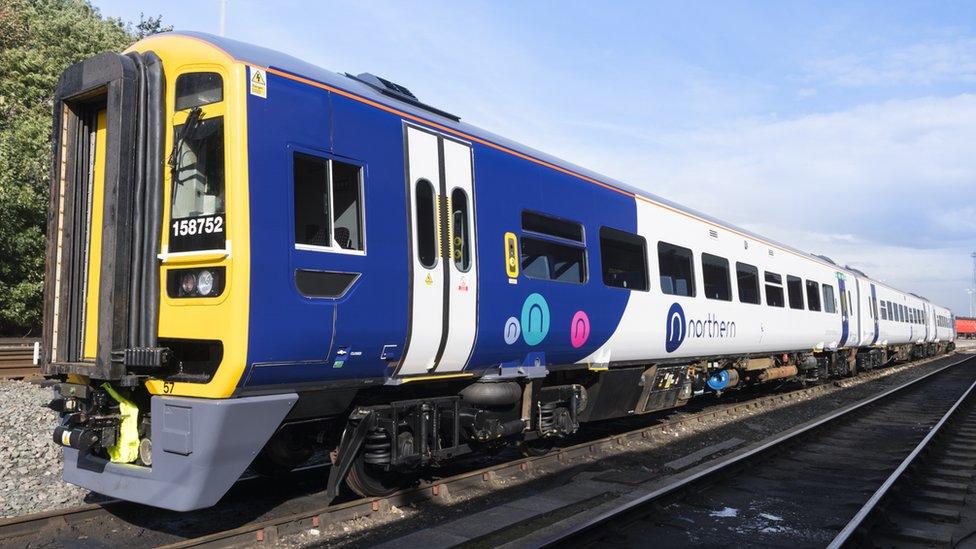Rail industry promises investment and improvement in services
- Published
- comments
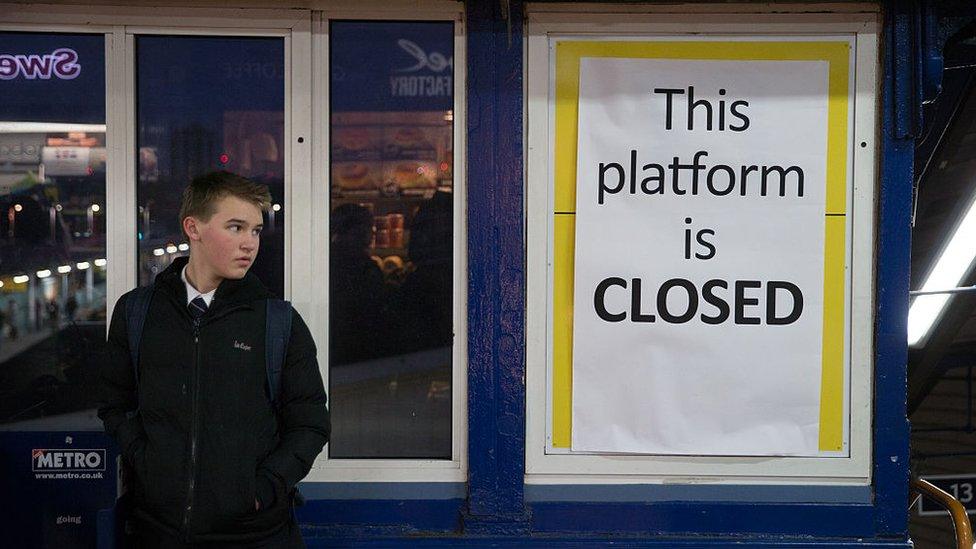
Britain's rail industry has joined forces in a pledge to improve services, investment - and their public image.
Plagued by years of bad publicity, the industry on Monday said passengers will see a "transformation in their railway" over the next 18 months.
The Rail Delivery Group (RDG), a pan-industry body, said there would be a "landmark coming together" of private operators, suppliers, and Network Rail.
But rail union leaders dismissed it as the "same old fantasy" story.
Strikes, including the long-running Southern Railway dispute, and the scrapping or delays in promised upgrades, have fuelled support for Labour's re-nationalisation plans.
Last year, punctuality was its worst for a decade.
Now the industry wants to present a united front with a promise to work more closely together and create a "public and private partnership railway".
RDG chief executive Paul Plummer described the launch of the In Partnership for Britain's Prosperity plan as a "landmark coming together".
The RDG's commitments include:
Keep running costs "in the black" to free up taxpayers' money
Raise customer satisfaction by running better services
Boost communities through localised decision making and investment
Create more jobs and increase diversity in the industry
The RDG said 5,700 new train carriages will be in use by 2021 as part of a £50bn investment. There will also be tens of thousands of new job opportunities and apprenticeships throughout the industry, it said.
Mr Plummer told an audience at an event at London St Pancras International station: "This plan, delivered by a changing partnership railway, will secure the economic benefits from current investment by the public and private sectors, and enable further improvement and investment.
Brexit
"That's why today we are making four commitments for change to safeguard our economic contribution whilst delivering the best deal for taxpayers, to improve services for customers, better connect local communities and secure more jobs in rail.
"This plan will deliver the railway that the economy, customers and communities need as Britain prepares to leave the European Union."
More strikes in rail conductors dispute
High-speed train delayed on first journey
Small firms want Metro and rail work
The move was backed by a host of industry figures.
Mark Carne, chief executive of Network Rail, which manages Britain's railway infrastructure, said the plan would "accelerate change".
Nick Crossfield, managing director of trainmaker Alstom UK, said: "This important new plan from RDG sets out the industry's commitment to delivering a better railway".
It was also welcomed by the Department of Transport, which said the RDG's commitments would bring big economic benefits to the country. But a spokesman added that "strong central leadership from the rail industry will be vital".
Passengers, however, may feel the challenge facing the industry is huge.
'Racketeers'
Punctuality on the rail network reached its lowest point in over a decade in 2016, with more than one in 10 (12.3%) trains failing to reach their destinations on time according to the Office of Rail and Road.
This was the worst performance for a 12-month period since the year ending September 2006.
The latest figures show that in the year to 14 October some 11.6% of trains failed the same punctuality target.
Mick Cash, general secretary of the Rail, Maritime and Transport union, said the RDG's announcement was "just the same old fantasy railway and jam tomorrow, driven by the financial interests of the overseas private companies that have been granted a licence to plunder Britain's railways for another two decades.
"The only national plan that would enable us to build for the future would be to kick out the private racketeers who are robbing us blind and bring the entire rail network under public ownership and public control."
- Published25 October 2017
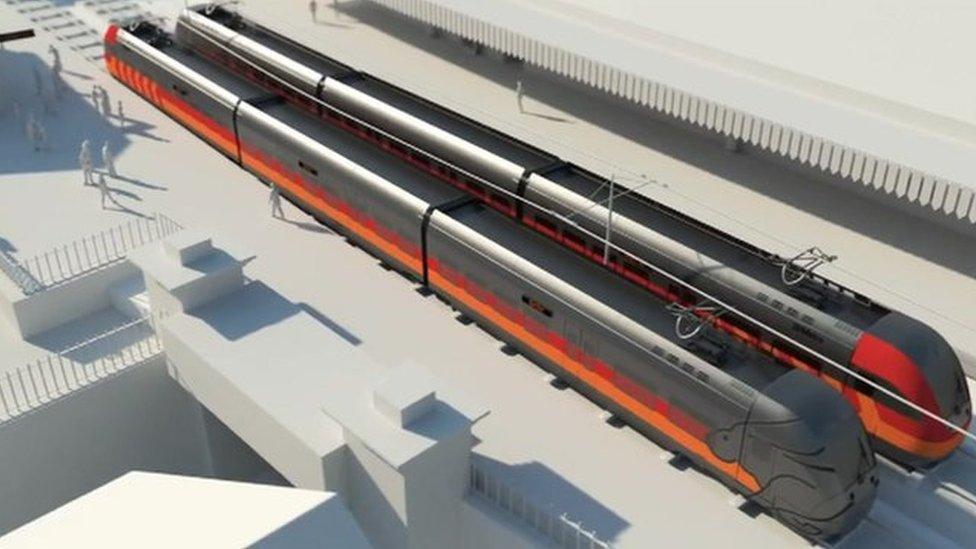
- Published24 October 2017
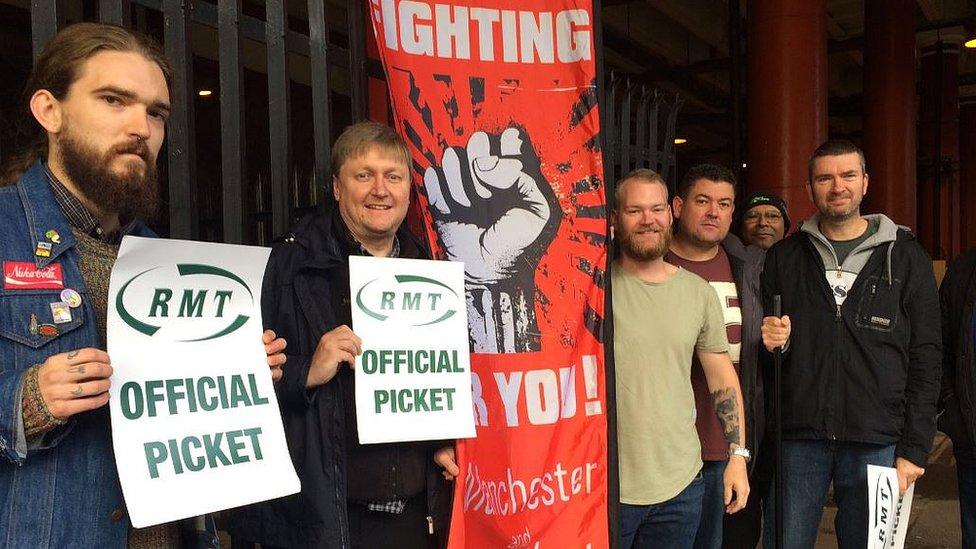
- Published16 October 2017
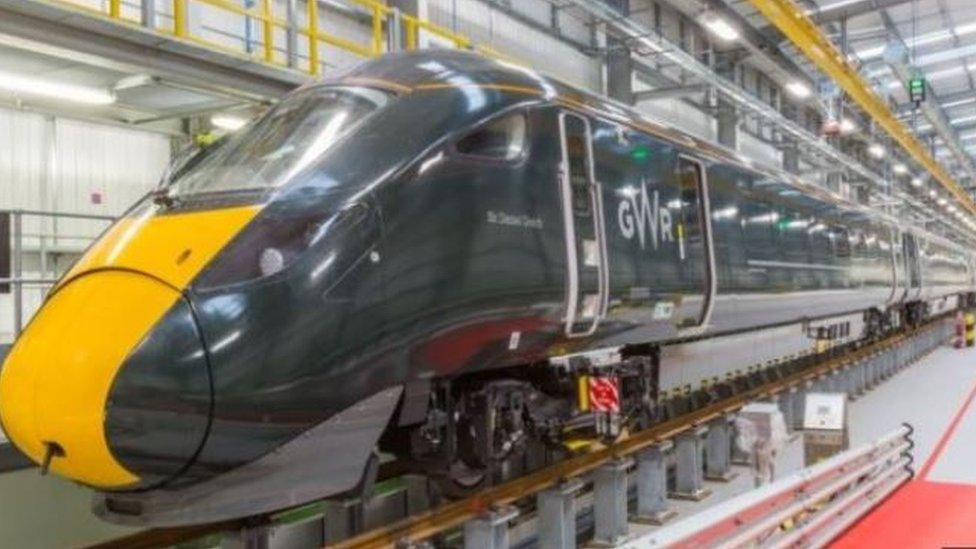
- Published16 October 2017
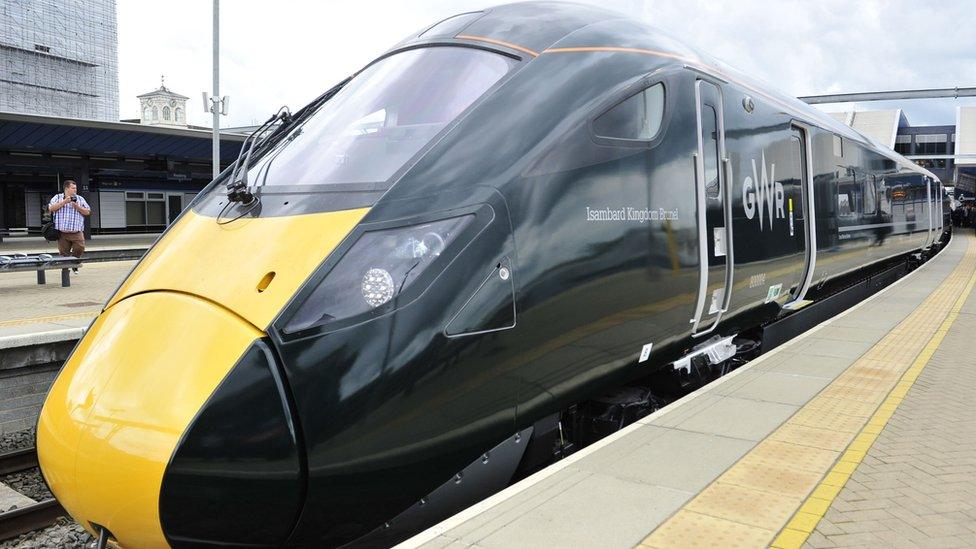
- Published19 September 2017
